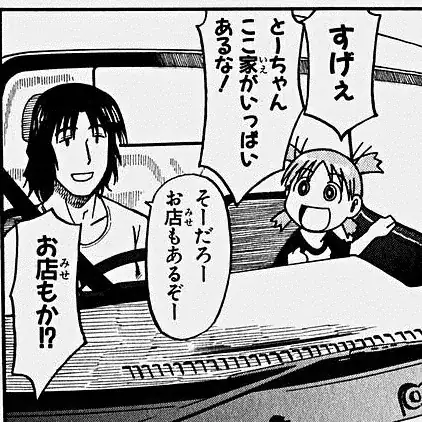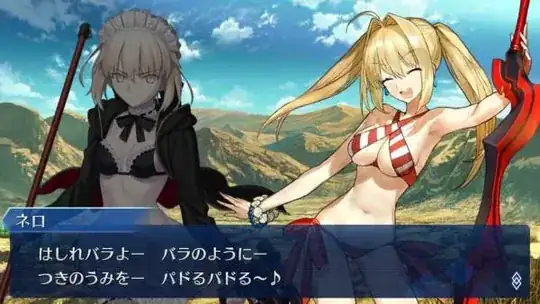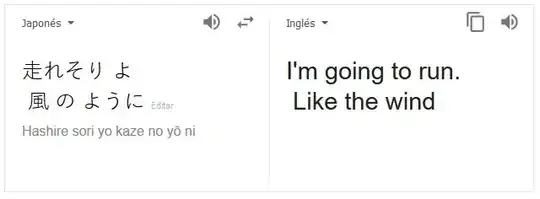This all probably bogs down to Nero's whimsical nature and "padoru" is just some mumble jumbo that took on a life of its own as a meme. As some may not be aware the Saber-class servant Nero Claudius is a bad, off-key singer, much like the Lancer-class Elisabeth Bathory.
Nero herself has no particular skills or feats that would qualify her to be a Saber class servant and only has any sword skills as a direct result of her Imperial Privilege skill.
Nero's feats in bad singing is derived from historical fact. Nero's off-key singing in the Type Moon Ace Fate/Extra short is a direct play off of this.
The so-called original wording of the "Jingle Bells" lyrics go something like:
走れそりよ 風のように 雪の中を 軽く早く (かるくはやく, karuku hayaku, more or less with gentle swiftness)
No official explaination has been provided in canonical material, but a certain FGO Summer racing even, Nero is seen and heard singing a similar song, but with roses (bara/バラ/ばら) in place of certain words for no explained reason. "Bara" and the "Pado" in "padoru/パドる" use katakana, normally used for foreign (loan) words, instead of hiragana, normally used for standard Japanese words.
Rose in Japanese is written as 薔薇 (ばら), which is notorious for how hard it is to remember, so it is typically spelled out using kana as バラ.
A characteristic in Japanese that is not well understood or articulated is how the Japanese use katakana and hiragana as a literary device. It's not easy to articulate the nuisance if something such as an foreign accent or emphasis on certain words in Japanese writing as there are set pronunciations for each character. The nuisance of using katakana for a name can express the foreignness of the name or boldness) harshness of it's pronunciation or tone, akin to using UPPERCASE vs. lowercase can put emphasis or create the nuisance of shouting in written dialog. The lack of kanji in written text can also convert the simplicity of one's character or dialog. For an example, to convey the nuance ifca child talking vs that of an adult, a child speaking might only use hiragana, while a adult mixes hiragana and kanji when talking.
A simple example can be seen in the Yotsuba:

The use of different fonts also helps add emphasis to the nuance between how they speak.
While there are no lyrics for context in the Type Moon Ace short, the FGO Summer event provides some context that we can infer thru how it is written and the literary intend from whomever authored or oversaw the dialogue.

Roses and padding make very little sense in this context, especially is land racing.
Once interpretation can be that what is likely being conveyed is the whimsical and child-ish tone of Nero's bad singing and the fact that she doesn't remember or intentionally ignores the proper lyrics and (indirectly on the audience) asserts her Imperial Privilege to insert whatever she fancies into the lyrics, and establishing them as the proper lyrics as no one bothers correcting her.
In essence "padoru" has no real meaning us is just a bit if a filler that the off-key Nero probably misheard and went along with.


